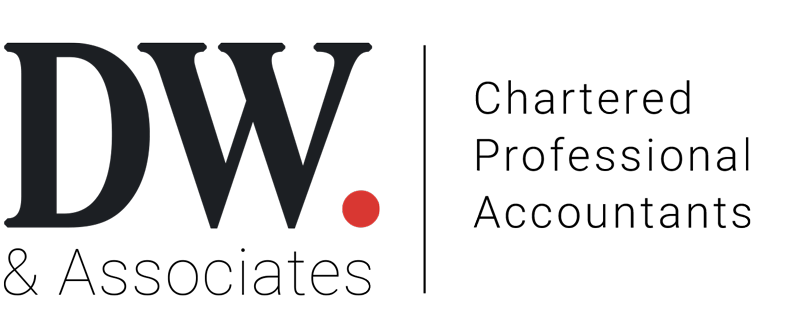Planning for your business’s taxes is an ongoing process and not just an activity that gets checked off the list when taxes are due. With daily business operations taking up time and financial resources, it is important to
What does effective tax planning entail, and how do you ensure your business makes the most of tax benefits? Here are a few tax considerations to keep in mind.
Tax Deadlines
All businesses must report income on an annual basis. Your business’s fiscal period for income tax purposes can be a calendar year or a non-calendar year if you run a sole proprietorship or partnership. As a corporation, your tax year is your fiscal period.
Self-employed individuals have until June 15th to file taxes except when this date falls on a public holiday or a weekend. In this case, the deadline becomes the next business day. As an incorporated business, you are required to file your T2 corporate income tax return within six months of your year-end. For example, a December 31 year-end will put your tax filing deadline at June 30 the following year. A March 31 year-end will mean your tax filing due date is September 30 of the same year.
Generally, the Canada Revenue Agency (CRA) requires self-employed individuals to pay any tax owing by April 30. Corporations, on the other hand, are generally required to pay taxes in installments.
Farming and fishing income businesses have their installment payments due December 31. Other types of businesses have installment payments due every quarter of the year by March 15, June 15, September 15, and December 15. Your business may be exempt from the installment tax payments if it is a new corporation or you have a tax payable of $3,000 or less.
If your business is registered for GST/HST, you must file GST/HST returns. Your GST/HST filing deadline depends on your GST/HST filing period.
Tax Deductions and Credits
Tax deductions and credits can help your business reduce its taxable income and taxes owed to the Canada Revenue Agency. The current federal basic corporate tax rate is 38%, subject to a 10% federal tax abatement and a general tax reduction of 13% on qualifying income. This brings the estimated corporate net tax rate to 15%. Canadian-controlled private corporations claiming the small business deduction can reduce their net tax rate to 9%.
Generally, provinces and territories use two income tax rates: a lower rate (usually subject to a business limit) and a higher rate. British Columbia’s corporation tax uses a 2 percent lower rate, subject to a business limit of $500,000, and a 12 percent higher rate.
Federal Tax deductions and credits you can claim to reduce your income tax payable include:
- Small business deduction
- Federal tax abatement
- Manufacturing and processing profits deduction and zero-emission technology manufacturing deduction
- Investment corporation deduction
- Foreign business and non-business income tax credit
- Qualifying environmental trust tax credit
- Logging tax credit
Other provincial tax credits and deductions available for BC businesses include the book publishing tax credit, clean buildings tax credit, SR&ED tax credit, and interactive digital media tax credit.
Bookkeeping
Businesses need to pay taxes on their net income after deducting allowable expenses. A good bookkeeping system lets you capture all your operating costs and expenses required to run your business.
Failure to capture all expenses will inflate your net income before taxes, resulting in a higher tax payable. Depending on your type of business, the CRA may allow cash accounting or accrual based accounting methods for capturing business expenses. If you run a Farm or fishery business, or you are a self-employed commission agent, you can report your income using the cash method or the accrual method. For all other self-employment businesses, you must report your income using the accrual method.
The cash accounting method requires you to report all business income in the fiscal period you receive it and all business expenses in the period you pay for it.
The accrual accounting method differs from the cash accounting method as it requires you to report all business income in the fiscal period you earn it, even if you have not received it, and deduct expenses in the fiscal period you incur them, regardless of whether you have paid for them yet.
Examples of expenses you can claim for your business include marketing and advertising, allowable meals and travel expenses, use-of-home-for-business expenses, rent, interest charges, business taxes, licenses and memberships, salaries and wages, repairs and maintenance, delivery and freight, and other administrative expenses.
For tax audit purposes, the CRA recommends you keep your business records for at least 6 years from the end of the applicable tax year. Examples of business expense records to keep include invoices, sales receipts, deposit slips, refund receipts, tax assessments, bank statements, and canceled cheques. Ensure your records contain complete details, such as business name, vendor name, date, business or vendor address and description of income or expenses.
You can record your business income and expenses using manual journals or a software accounting program. An effective accounting software program, such as QuickBooks Online, allows you to capture business income and expenses more accurately.
DW & Associates Chartered Professional Accountants help businesses file income taxes on time, allowing you to claim all allowable expenses, tax deductions and credits you minimize your taxes. Contact the team to file your self-employment taxes before the June 15 deadline. If your corporation has a December 31st deadline, we’ll work with you to complete your taxes before June 30, 2024.



